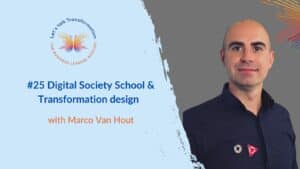“The scale and extent of the culture shift for HR will depend on the appetite for change of the organisation.”
In this episode of let’s talk John and I discuss how the pandemic has unlocked corporate thinking to think about different ways of working, networking and communication. We also look at the importance of balance in the different elements and what technology and human collaboration brings to the mix. The changing trends and expectations of the workplace from candidates and employees as we transition into newer, more hybrid workplace and operating models is a key driver of change and an organisation’s HR function must reflect the values and purpose of the organisation and act accordingly with a talent plan based on collaboration rather than competition. We finish by discussing what the ‘future normal’ will bring in terms of more inclusive ways of working and people centred HR moving forward.
John shares his thoughts, insights and wealth of experience on HR transformation and the changing role of HR in today’s post pandemic environment.
The main insights you will get from this episode are :
- in terms of leadership, the changing role of HR and the employee experience, ideally the lessons learned and positive changes resulting from COVID will be sustained and built upon
- the ‘new normal’ is actually ‘abnormal’, in that it prevents human interaction, but there will definitely be a ‘future normal’, which is all about evolution and striking a better balance
- HR as a function must reflect the values and purpose of the organisation, both inwardly and outwardly, and seek to provide a fit-for-purpose talent plan that puts the employee experience at its heart
- an organisation’s ethos will be evident in how it treats its employees who now have a more powerful voice thanks to social media; such ‘activism’ will mean that leaders must listen and respond quickly to retain talent
- rigid HR function and reward systems are outdated; the focus should shift to different models such as gain sharing, where everyone feels valued for the contribution they make
- good leaders should foster collaboration rather than competition amongst their workforce, strive for diverse thinking and unlock talent by removing internal barriers and unnecessary processes
- post-COVID hybrid models of flexible working that offer a healthier balance will require the investment of time, money and effort, but will ultimately benefit the greater good –
- demonstrating inclusivity and an atmosphere of trust and safety for employees pays dividends in having a sound people strategy that underpins the company’s business
- it is vital to understand (new) technologies and garner them to provide more added value across the board – when leaders make changes they have impact, and it is in their power to shift company culture and demonstrate authenticity in all that they do









